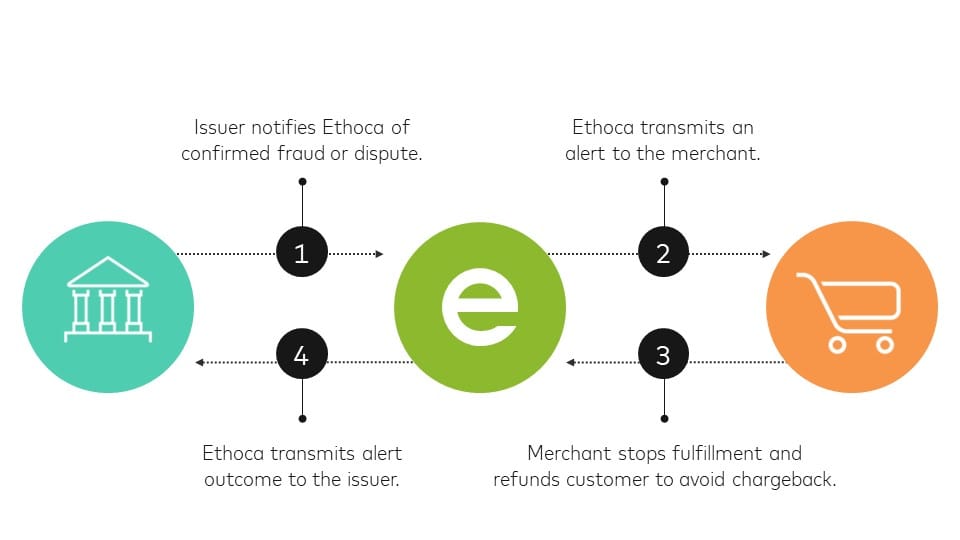
Are you ready to take your estate business to the next level? Having a well-designed and comprehensive business plan is crucial for success in the competitive real estate market. Whether you are starting a new estate agency or looking to grow your existing business, a solid business plan will serve as a roadmap to guide your decisions and actions.
In this blog post, we will provide you with a comprehensive estate business plan template that covers all the essential aspects of running a successful estate business. From market analysis and creating a business model to developing a marketing and sales strategy, we have got you covered.
First, we will dive into the basics of estate business and the importance of understanding the market. We will explore how to conduct a thorough market analysis, including understanding your target market and conducting a competition analysis. Additionally, we will discuss the importance of conducting a SWOT analysis to identify your business's strengths, weaknesses, opportunities, and threats.
Next, we will guide you through the process of creating a business model for your estate business. We will help you define your services, determine a pricing strategy that aligns with your target market, and explore various revenue generation methods to maximize your profitability.
Marketing and sales are crucial aspects of any business, and the estate industry is no exception. We will provide insights on branding and positioning your estate business to stand out from the competition. We will also discuss various marketing channels and sales tactics that can help you attract and retain clients.
Finally, we will delve into the financial projections and strategy for your estate business. We will help you understand the startup costs, project profit and loss, analyze cash flow, and determine your break-even point. These financial insights will enable you to make informed decisions and ensure the financial stability and growth of your estate business.
Whether you are a seasoned estate agent or new to the industry, this estate business plan template will provide you with the tools and knowledge you need to succeed. So, let's get started on creating a roadmap for your estate business!
Understanding the Basics of Estate Business
The estate business encompasses a wide range of activities related to the buying, selling, renting, and managing properties. Before diving into the details of creating a business plan, it is essential to have a solid understanding of the basics of the estate business.
What is the Estate Business?
The estate business, also known as the real estate industry, involves the purchase, sale, and leasing of various types of properties, including residential, commercial, and industrial properties. It also includes property management, property development, real estate investment, and related services such as appraisals, inspections, and legal assistance.
Key Players in the Estate Business
The estate business involves various key players who play crucial roles in the industry. These players include:
Real Estate Agents: These professionals act as intermediaries between buyers and sellers, helping clients find suitable properties and negotiating transactions.
Property Developers: Property developers acquire land or existing properties and develop them into new projects, such as residential communities, commercial buildings, or mixed-use developments.
Property Managers: Property managers are responsible for overseeing the day-to-day operations of rental properties on behalf of the property owners. They handle tasks such as tenant screening, rent collection, maintenance, and property inspections.
Mortgage Lenders: Mortgage lenders provide financing options to individuals and businesses looking to purchase properties. They offer various loan products, such as mortgages and loans for property development.
Investors: Real estate investors purchase properties with the intention of generating income through rental or resale. They may specialize in residential, commercial, or industrial properties.
Types of Estate Businesses
Within the estate business, there are various types of businesses that cater to different segments of the market. Some common types of estate businesses include:
Estate Agencies: These are companies that offer services for buying, selling, and renting properties on behalf of clients. They typically employ real estate agents who work with clients to meet their property needs.
Property Management Companies: These companies specialize in managing rental properties on behalf of property owners. They handle tenant relations, maintenance, rent collection, and other property-related tasks.
Real Estate Development Firms: These firms focus on acquiring land or existing properties and developing them into new projects. They oversee the entire process, from planning and construction to marketing and sales.
Real Estate Investment Companies: These companies invest in properties with the goal of generating income through rental or resale. They may focus on specific property types or geographical locations.
Legal and Regulatory Considerations
Operating an estate business requires compliance with various legal and regulatory requirements. These may include obtaining licenses and permits, adhering to zoning and building codes, and ensuring compliance with fair housing laws, among others. It is crucial to familiarize yourself with the legal and regulatory landscape of the specific area where you plan to operate your estate business.
Understanding the basics of the estate business sets the foundation for creating a successful business plan. With this knowledge in mind, we can now move on to conducting a comprehensive market analysis to identify opportunities and challenges in the industry.

Market Analysis for Your Estate Business
To create an effective estate business plan, it is crucial to conduct a thorough market analysis. This section will focus on understanding your target market, analyzing the competition, and performing a SWOT analysis to identify your business's strengths, weaknesses, opportunities, and threats.
Understanding Your Target Market
Demographics: Identify the demographic characteristics of your target market, including age, income level, occupation, and lifestyle. Determine the specific segments within the market that align with your services and value proposition.
Psychographics: Dive deeper into the psychographic profile of your target market. Understand their preferences, motivations, interests, and behaviors related to real estate transactions. This will help you tailor your marketing messages and services to resonate with your target audience.
Needs and Pain Points: Identify the needs and pain points of your target market when it comes to buying, selling, or renting properties. This will help you position your services as solutions to their specific challenges and provide a competitive advantage.
Market Size and Trends: Determine the size of your target market and track any relevant trends or changes in the real estate industry. This information will help you assess the potential demand for your services and identify market opportunities.
Competition Analysis
Competitor Identification: Identify the main competitors in your target market. This includes other estate agencies, property management companies, real estate developers, and investors operating in the same geographical area.
Competitive Advantage: Evaluate the strengths and weaknesses of your competitors. Identify what sets your estate business apart and how you can leverage your unique selling points to gain a competitive edge.
Market Share: Assess the market share of your competitors and their positioning in the market. Determine if there are any gaps or underserved segments that you can target.
Pricing and Services: Analyze the pricing strategies and services offered by your competitors. Determine if there are any pricing gaps or service differentiators that you can capitalize on.
SWOT Analysis
Strengths: Identify the internal strengths of your estate business, such as your expertise, experience, unique services, or strong brand reputation. These strengths will give you a competitive advantage and help you attract clients.
Weaknesses: Assess the internal weaknesses of your estate business, such as limited resources, lack of brand awareness, or a small client base. Understanding your weaknesses will allow you to develop strategies to overcome them.
Opportunities: Identify external opportunities in the market that you can capitalize on, such as emerging neighborhoods, new property developments, or changes in government policies that favor the real estate industry.
Threats: Evaluate external threats that may impact your estate business, such as economic downturns, regulatory changes, or increased competition. Understanding these threats will help you develop strategies to mitigate their impact.
By conducting a comprehensive market analysis, you will gain valuable insights into your target market, competition, and the overall industry landscape. Armed with this information, you can move forward to the next section of your estate business plan, which focuses on creating a business model tailored to your target market's needs and preferences.
Creating a Business Model for Your Estate Business
Creating a solid business model is essential for the success of your estate business. This section will guide you through the process of defining your services, determining a pricing strategy, and exploring various revenue generation methods.
Defining Your Services
Service Offerings: Clearly define the range of services your estate business will provide. This may include property buying and selling, property management, real estate consulting, investment analysis, and more. Specify the scope of each service and any specialized areas you plan to focus on.
Target Clientele: Identify the specific target clientele for each service offering. Determine if you will cater to residential clients, commercial clients, or both. Consider factors such as property type, location, and client preferences to refine your target clientele.
Unique Value Proposition: Determine your unique value proposition that sets you apart from competitors. This could include factors such as exceptional customer service, expertise in a specific niche, innovative technology solutions, or personalized attention to clients' needs.
Pricing Strategy
Pricing Structure: Establish a clear and competitive pricing structure for your services. Consider factors such as market rates, the complexity of the service, and the value you provide to clients. Determine if you will charge a flat fee, a percentage-based commission, or a combination of both.
Fee Structure for Additional Services: Determine how you will price any additional services or add-ons that you offer, such as property appraisals, home staging, or legal assistance. Ensure that your pricing is transparent and fair to both you and your clients.
Pricing Flexibility: Consider whether you will offer any pricing flexibility, such as volume discounts for clients with multiple properties or customized pricing for high-value transactions. Assess the potential impact on your profitability and market positioning.
Revenue Generation Methods
Commission-Based Revenue: If your estate business involves property transactions, outline how you will generate revenue through commissions. Determine the percentage or flat fee you will charge for buying, selling, or renting properties and calculate the potential revenue based on projected transaction volumes.
Service-Based Revenue: Identify additional revenue streams that align with your services, such as property management fees, consulting fees, or subscription-based services. Determine the pricing structure for these services and estimate the potential revenue they can generate.
Ancillary Revenue: Explore opportunities for generating ancillary revenue, such as partnerships with mortgage lenders, insurance providers, or home improvement companies. Assess the potential for referral fees or other revenue-sharing arrangements.
Diversification of Income: Consider diversifying your income sources by exploring other avenues such as real estate investments, property development, or offering educational courses or workshops related to the real estate industry.
By defining your services, determining a pricing strategy, and exploring various revenue generation methods, you will establish a solid business model for your estate business. This will lay the foundation for the next section of your business plan, which focuses on developing a comprehensive marketing and sales strategy to attract and retain clients.
Marketing and Sales Strategy for Your Estate Business
Developing a robust marketing and sales strategy is crucial for attracting clients and growing your estate business. In this section, we will explore key elements of a successful marketing and sales strategy, including branding and positioning, marketing channels, and sales tactics.
Branding and Positioning
Brand Identity: Establish a strong brand identity for your estate business. Define your brand values, mission statement, and unique selling points. Develop a compelling brand story that resonates with your target market and sets you apart from competitors.
Logo and Visual Identity: Create a visually appealing and professional logo that represents your brand. Develop a consistent visual identity, including color schemes, typography, and imagery, to maintain brand recognition across all marketing materials.
Brand Messaging: Craft clear and concise messaging that communicates the value and benefits of working with your estate business. Develop key messages that address your target market's pain points and position your services as the ideal solution.
Online Presence: Establish a strong online presence through a professional website and active presence on relevant social media platforms. Optimize your website for search engines to ensure potential clients can find you easily.
Marketing Channels
Online Marketing: Utilize online marketing channels to reach your target audience effectively. This may include search engine optimization (SEO), pay-per-click (PPC) advertising, content marketing, email marketing, and social media advertising.
Offline Marketing: Explore traditional marketing channels to complement your online efforts. This may include print advertising in local newspapers or magazines, direct mail campaigns, networking events, and sponsorships of community events.
Referral Programs: Develop a referral program to encourage satisfied clients and business partners to refer new clients to your estate business. Offer incentives such as discounts, rewards, or referral fees to motivate referrals.
Partnerships and Collaborations: Identify potential partnerships with complementary businesses or professionals, such as mortgage lenders, interior designers, or home inspectors. Collaborate on joint marketing initiatives or cross-promotion to expand your reach.
Sales Tactics
Consultative Selling: Adopt a consultative approach to selling by understanding your clients' needs and providing personalized solutions. Build trust and credibility by offering expert advice and guidance throughout the buying or selling process.
Relationship Building: Focus on building strong relationships with clients and maintaining regular communication. Stay in touch with past clients through newsletters or personalized messages to nurture long-term relationships and encourage repeat business or referrals.
Client Testimonials and Case Studies: Collect and showcase testimonials and case studies from satisfied clients. Highlight success stories, positive experiences, and the results achieved through your services. Use these testimonials to build trust and credibility with potential clients.
Continuous Learning and Development: Stay updated with industry trends, market insights, and new technologies. Attend industry conferences, seminars, and training programs to enhance your knowledge and skills. Position yourself as a trusted advisor by providing clients with the latest industry information and expertise.
By implementing a well-rounded marketing and sales strategy, you will increase your visibility, attract qualified leads, and convert them into satisfied clients. This will pave the way for the next section of your estate business plan, which focuses on financial projections and strategies to ensure the financial stability and growth of your business.
Financial Projections and Strategy for Your Estate Business
Creating financial projections and developing a sound financial strategy is crucial for the success and sustainability of your estate business. In this section, we will explore key components such as startup costs, profit and loss projections, cash flow analysis, and break-even analysis.
Startup Costs
Initial Investment: Determine the initial investment required to start your estate business. This includes costs such as office space, furniture, equipment, software, licenses, permits, marketing materials, and initial inventory.
Legal and Professional Fees: Consider legal fees for setting up your business structure, hiring an attorney, and obtaining necessary licenses. Also, account for any professional fees for services such as accounting or consulting.
Staffing Costs: Estimate the costs associated with hiring and training your team, including salaries, benefits, and any recruitment expenses.
Marketing and Advertising Expenses: Allocate a budget for marketing and advertising activities to promote your estate business and attract clients.
Profit and Loss Projections
Revenue Projections: Estimate your projected revenue based on your pricing strategy, market analysis, and projected transaction volumes. Consider different revenue streams such as commissions, service fees, and ancillary services.
Operating Expenses: Identify and quantify all operating expenses, including rent, utilities, office supplies, insurance, staff salaries, marketing expenses, and professional fees. Break down the expenses on a monthly or annual basis.
Net Profit: Calculate your projected net profit by subtracting your total expenses from your projected revenue. Monitor and adjust your expenses to ensure profitability and sustainability.
Cash Flow Analysis
Cash Inflows: Determine the sources of cash inflows, including client payments, rental income, or any other revenue streams. Consider the timing of these inflows based on your business model and industry norms.
Cash Outflows: Identify the timing and amount of cash outflows, such as rent, salaries, marketing expenses, loan repayments, and any other operating expenses. Account for any seasonal or irregular expenses.
Cash Flow Forecast: Prepare a cash flow forecast that projects your anticipated cash inflows and outflows over a specific period, typically on a monthly or quarterly basis. Identify potential cash flow gaps and plan accordingly to ensure adequate funds are available.
Break-Even Analysis
Break-Even Point: Determine the break-even point for your estate business, which is the point at which your revenue covers all your expenses and you start generating a profit. Calculate the number of transactions or clients required to reach this point.
Sensitivity Analysis: Perform a sensitivity analysis to assess the impact of changes in key variables, such as pricing, expenses, or market conditions, on your break-even point. This analysis will help you understand the risks and potential scenarios for profitability.
Strategies for Profitability: Develop strategies to achieve and surpass your break-even point, such as increasing sales, reducing expenses, targeting higher-value transactions, or diversifying your revenue streams.
By creating financial projections and developing a sound financial strategy, you can make informed decisions, manage your finances effectively, and ensure the financial stability and growth of your estate business. This concludes the last section of your estate business plan, providing you with a comprehensive roadmap to guide your journey to success.


